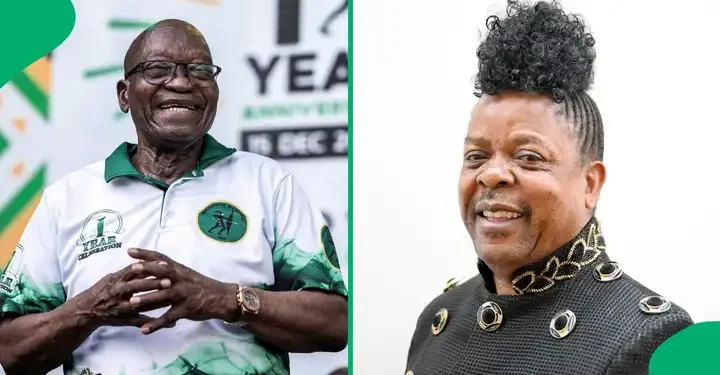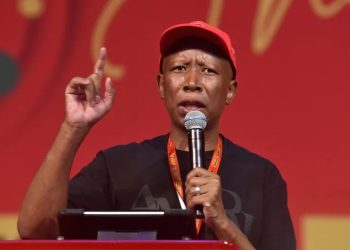Papa Penny, a popular South African musician and reality TV star, has stirred controversy by alleging that the South African government is tarnishing former President Jacob Zuma’s reputation out of jealousy. His outspoken remarks, made during a recent interview, have ignited widespread reactions across social media, reflecting the deep divisions in public opinion over Zuma’s legacy.
In his comments, Papa Penny accused certain members of the ruling African National Congress (ANC) of actively working to erase Zuma’s achievements due to envy over the former president’s enduring popularity. “Zuma contributed greatly to South Africa. People are jealous because of the love he still receives from his supporters,” Papa Penny stated. He called on the government to acknowledge Zuma’s accomplishments rather than diminish them.
Social Media Reactions
The remarks sparked a flurry of reactions online, ranging from praise to ridicule. Supporters of Zuma applauded Papa Penny for voicing what they see as an unjust campaign against the former leader. Critics, however, dismissed his claims, arguing that Zuma’s legacy is overshadowed by allegations of corruption, state capture, and economic mismanagement during his presidency.
On social media, responses reflected the polarized nature of Zuma’s legacy. Some users ridiculed Papa Penny’s foray into political commentary, suggesting he should stick to music and entertainment. Others defended his right to express his views, emphasizing that everyone, regardless of profession, has a stake in the nation’s political discourse.
One skeptical user remarked, “Papa Penny ought to stick to music; politics is not his strong suit.” Another joked, “Only in South Africa can a musician defend a former president with such confidence.” Yet, Zuma’s loyalists echoed Papa Penny’s sentiments, with one supporter commenting, “Finally, someone is speaking the truth about Zuma’s legacy.”
Zuma’s Divisive Legacy
Jacob Zuma remains a deeply polarizing figure in South Africa. Critics often highlight his administration’s alleged involvement in state capture and the economic struggles that marked his tenure. Conversely, his supporters point to achievements such as rural development, infrastructure projects, and his ability to connect with marginalized communities.
Papa Penny’s remarks, while unconventional, have reignited the debate about how Zuma’s time in office is judged. They also underscore the emotional and political sensitivities surrounding his legacy.
As South Africans continue to grapple with the complexities of Zuma’s presidency, figures like Papa Penny demonstrate that the discourse is not confined to politicians or academics. The former president’s legacy, whether viewed through a lens of critique or admiration, remains a focal point of national conversation.
Conclusion
Papa Penny’s outspoken defense of Jacob Zuma is a reminder of the diverse voices that contribute to South Africa’s vibrant political discourse. Whether his views will influence broader public opinion remains to be seen, but they have certainly reignited discussions about Zuma’s achievements, controversies, and enduring impact on the nation’s history.






















